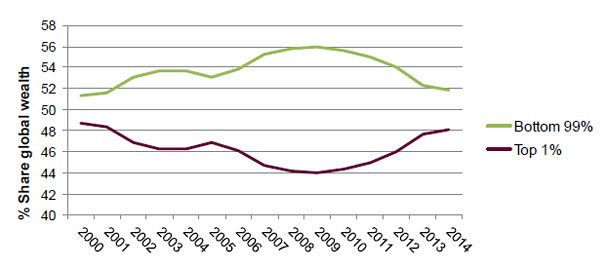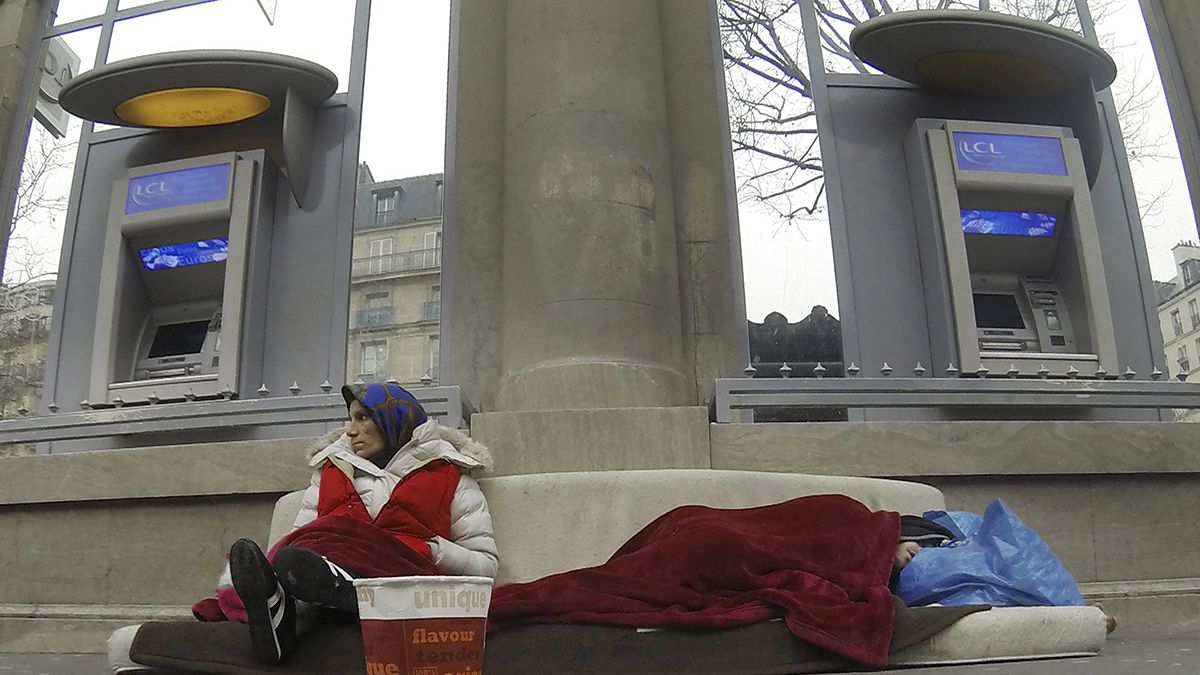The growing divide On current trends, by next year the richest 1 percent of the world’s population will own more than the other 99 percent combined
The growing divide
On current trends, by next year the richest 1 percent of the world’s population will own more than the other 99 percent combined, according to a shock report by the anti-poverty charity Oxfam.
Released ahead of this week’s annual meeting of the international elite at Davos in Switzerland, the study argues that global inequality is soaring, with the top tier seeing their share of wealth increase from 44 percent in 2009 to 48 percent in 2014.
 On current trends, it will exceed 50 percent in 2016.
On current trends, it will exceed 50 percent in 2016.
Where do you stand on the global wealth ladder?
Most of us can only dream of a jaw-dropping fortune but if you are wondering whether you qualify for the top 1 percent bracket, you will need a cool 2.3 million euros ($2.7 million) according to the average figure per adult, quoted by Oxfam.
On the other end of the scale, if everything you own is worth less than 8,600 ($10,000), you’re in good company, almost 70 percent of the world’s adults fall below this level.
Oxfam notes that more than a billion people still live on less than 1 euro a day ($1.25) – barely enough to buy a cup of coffee.
The world’s “middle class” comprises about 20 percent of the population, counting their wealth between 8,600 euros and 86,000 euros ($100,000), well below the cost of a house in many European countries.
Oxfam’s “wealthy” category, bridging the gap between the middle class and the top 1% includes just under 8% of people.
The richest of the rich
The richest 80 individuals in the world have the same wealth as the poorest 50 percent of the entire population, some 3.5 billion people, according to Oxfam.
This is an even bigger concentration at the top than a year ago, when half the world’s wealth was in the hands of 85 of the ultra rich.
Oxfam notes that of the richest of the rich on last year’s Forbes list, 20% of billionaires had interests or activities in, or relating to, the financial and insurance sectors.
And the very rich are getting richer, the report argues, pointing, for example, to a 22% increase in wealth between 2013 and 2014 for ex-New York City Mayor and media tycoon Michael Bloomberg.
A 20% rise in the same period is reported for financier George Soros.
The report argues that: “Global wealth is increasingly being concentrated in the hands of a small wealthy elite”.
What can be done?
Oxfam says it will call for action to tackle rising inequality at the Davos meeting, which starts on Wednesday, including a crackdown on tax dodging by corporations and progress toward a global deal on climate change.
Oxfam’s executive director, Winnie Byanyima, who is co-chairing the World Economic Forum meeting, said an explosion in inequality was holding back the fight against poverty.
“Do we really want to live in a world where the one percent own more than the rest of us combined?” she said on Monday.
“Business as usual for the elite isn’t a cost free option. Failure to tackle inequality will set the fight against poverty back decades. The poor are hurt twice by rising inequality — they get a smaller share of the economic pie and because extreme inequality hurts growth, there is less pie to be shared around.”
